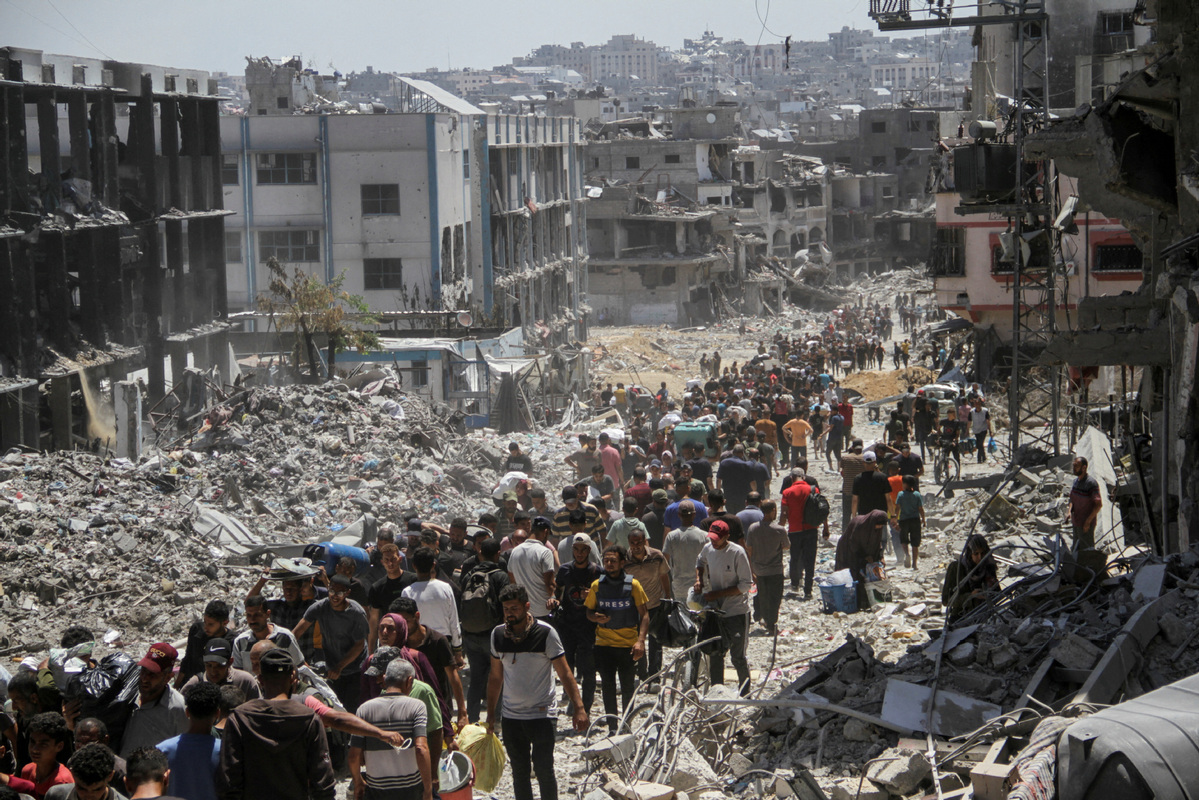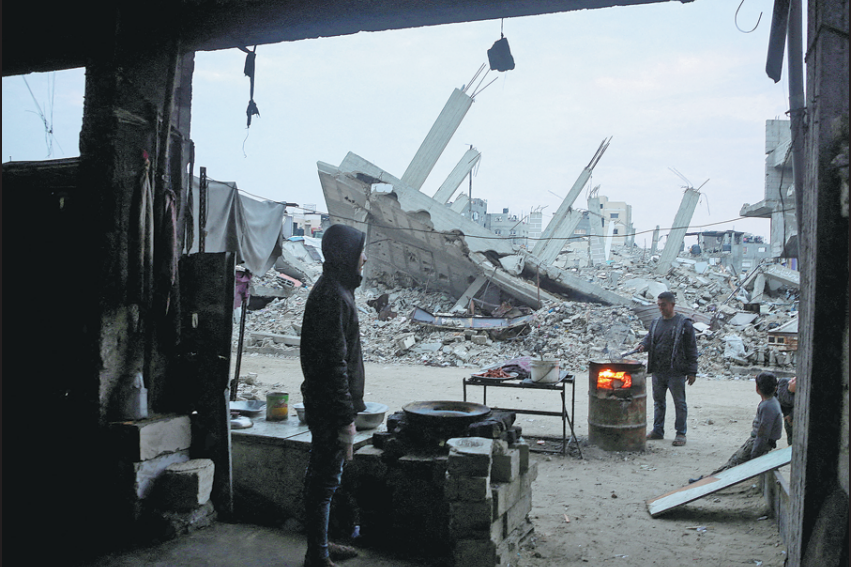Efforts urged to alleviate Gaza food crisis
Aid groups call for farm support as part of humanitarian assistance as Israeli attacks continue


International grassroots organizations are calling for more agricultural support to be incorporated into humanitarian work in a bid to strengthen Palestinian food security resilience as attacks on Gaza continue, according to an online forum on Friday.
The global solidarity meeting, conducted by the Silenced Suffering: Stop Bombing Rural Communities platform, came as a response to a call by the United Nations Special Rapporteur on the Right to Food Michael Fakhri who had sought inputs on ways to resolve the human rights and starvation problem with an emphasis on the Palestinian people's "food sovereignty".
The meeting was facilitated by the People's Coalition on Food Sovereignty, a network of grassroots groups, with entities from Nepal, Malaysia, Lebanon and Gaza among the participants. The meeting discussed human rights issues in various parts of the world but mostly focused on the situation in Gaza.
Ahmed Sourani, founder and general coordinator of the Gaza Urban and Peri-Urban Agriculture Platform, said the root cause of Palestine's food insecurity was "the (Israeli) occupation, (resulting in) wars and conflicts". Hence, having solidarity and strong local, regional and international networks is important, he said.
After eight months of the current conflict in the Gaza Strip, more than 85 percent of Palestinian farmers and peasants "cannot practice work" and "are disconnected from land, resources and agriculture activities", Sourani said.
"They are living in unbearable conditions. Around 60 percent of agricultural lands and projects are not functioning. Only 15 percent (of farmers and peasants) can continue their production or their work. … The West Bank is the same," he said, adding that it is important to bring Palestine and Palestinian voices to global forums.
He noted that in Gaza, 95 percent of the agri-lands are small-scale, and the practices were usually "based on family (team work)". He said there were about 25,000 farmers in Gaza but the majority of them have now been displaced and lost their premises.
"It is really important to help people come back to their lands, but there is a problem of lack of agricultural inputs," said Sourani, calling for more support "to influence policies at the global levels".
"We cannot neglect the high need for support for people, displaced people, and families in all parts of the Gaza strip. (We are) still working with medium capacities, (and) there is always a high need for all types of support," said Sourani. Among other things, there is "need for pressure to open the borders for support", he said.
"In Gaza, 100 percent (of the) agriculture (is) based on family contributions, but this is almost destroyed and non-existent," he added.
Meanwhile, Firoza Mayet of the South Africa Palestine Solidarity Alliance called for more political support to help "stop the genocide", and demanded an immediate cease-fire in Gaza.
"After today, we need to look at how to (strengthen) our solidarity for the people of Palestine" and push for an end to Israeli occupation, said Mayet.
In related news, the International Labour Organization, or ILO, said in a new brief report on Friday that eight months of conflict in the Gaza Strip have created massive jobs and livelihood loss.
In the Gaza Strip, almost all private sector establishments "have either completely ceased or significantly reduced production, with the sector losing 85.8 percent of its production value — equivalent to $810 million — during the first four months of the war", according to the ILO.
Further, in the West Bank, the private sector suffered a 27 percent reduction in production value equivalent to $1.5 billion during the same period.
"Our new bulletin shows the grim toll the war in the Gaza Strip has taken on human lives, and the desperate humanitarian situation it has caused, are accompanied by widespread devastation of economic activities and livelihoods. This compounds the suffering of Palestinians in the Gaza Strip and the West Bank and further endangers their safety and wellbeing," ILO Regional Director for Arab States Ruba Jaradat said in a statement.
"Restoring people's livelihoods and creating decent jobs is vital to enabling Palestinians in the Occupied Palestinian Territory to recover from the horrors the war has inflicted on them," Jaradat said.
"This recovery work must take place alongside the ongoing humanitarian response, and the ILO and its constituents and partners are implementing an Emergency Response Plan to this end," she added.
































